Albinism
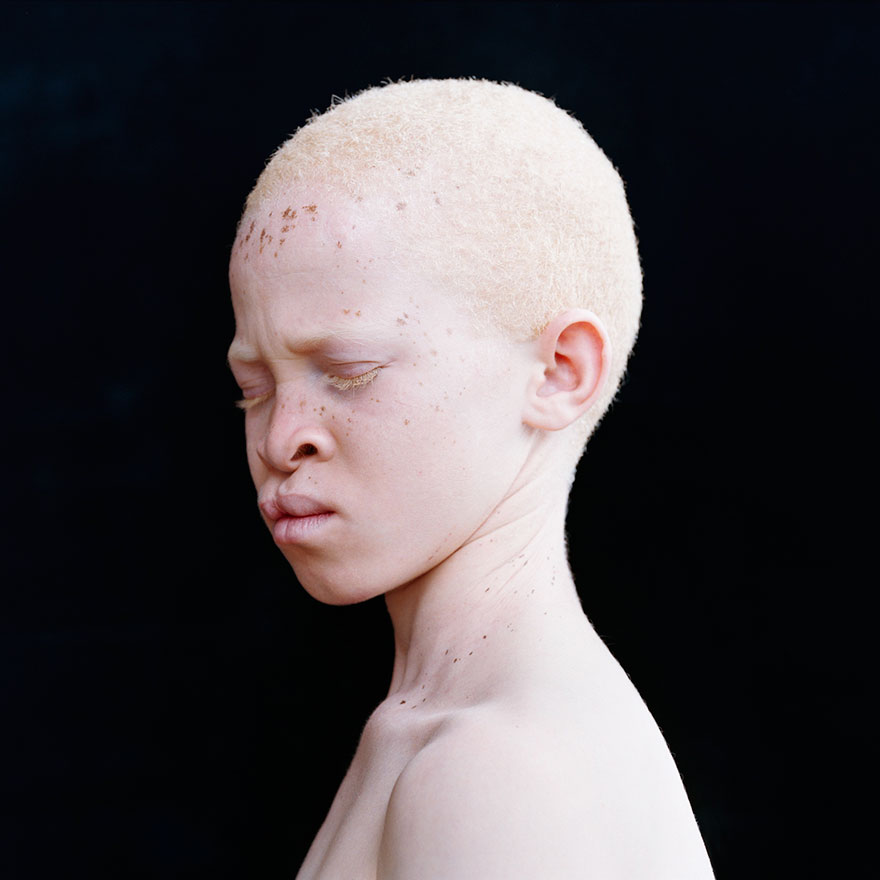
Albinism is a condition that affects how a person’s body makes a pigment called melanin. Melanin gives color to our hair, skin, and eyes. When someone has albinism, their body doesn’t make enough melanin or doesn’t make it at all. As a result, their hair, skin, and eyes may appear very light or even white.
Albinism can affect a person’s vision because melanin is also important for the development of the eyes. People with albinism may have trouble seeing clearly or may be more sensitive to bright lights.
Another important thing to know about albinism is that people with this condition are usually more sensitive to the sun. Their skin can easily get sunburned, and they have a higher risk of developing skin cancer. It’s important for them to protect their skin by using sunscreen, wearing protective clothing, and staying in the shade when the sun is strong.
Although albinism is a rare condition, it doesn’t mean that people with albinism are different in any negative way. They can do the same things as anyone else and have their own unique strengths and talents. It’s important to treat everyone with albinism with respect and understanding, just like we would with anyone else.
Albinism is a genetic condition characterized by the partial or complete absence of melanin, the pigment responsible for giving color to the skin, hair, and eyes. People with albinism often have very light or white hair, skin, and eyes. While albinism is a relatively rare condition, it occurs worldwide across all ethnicities.
Individuals with albinism face a range of challenges, both physical and social, due to the absence or reduced melanin. Some of the key challenges associated with albinism include:
Vision Impairment: Albinism commonly affects the development of the visual system, resulting in various degrees of visual impairment. The lack of melanin in the eyes leads to reduced pigmentation in the iris, causing sensitivity to bright light and glare. Additionally, individuals with albinism often experience reduced visual acuity, depth perception, and issues such as nystagmus (involuntary eye movement) or strabismus (crossed or misaligned eyes).
Sun Sensitivity: Melanin provides protection against the harmful effects of the sun’s ultraviolet (UV) rays. Since people with albinism have little to no melanin, they are highly susceptible to sunburns and an increased risk of developing skin cancer. Sun protection measures, such as wearing sunscreen, protective clothing, and sunglasses, are essential for individuals with albinism.
Visual Impairment and Education: Visual impairment associated with albinism can present challenges in educational settings. Difficulties in reading small print, following presentations on a board or screen, and participating in outdoor activities can impact learning and social interactions. However, with appropriate accommodations such as enlarged print materials, assistive technology, and optimal classroom lighting, individuals with albinism can overcome these challenges and thrive academically.
Social Stigma and Discrimination: People with albinism may face social stigmatization, misconceptions, and discrimination due to their physical appearance. Negative attitudes, stereotypes, and prejudices can lead to exclusion, bullying, and limited opportunities for social participation. Raising awareness, promoting inclusivity, and challenging societal perceptions are important steps in addressing these issues.
Limited Access to Healthcare: In some regions, individuals with albinism may face challenges in accessing appropriate healthcare services, including specialized eye care, dermatology, and genetic counseling. This can result in delayed diagnoses, inadequate treatment, and increased health risks.
- Psychological and Emotional Impact: Coping with the challenges associated with albinism can have psychological and emotional effects on individuals. Feelings of self-consciousness, low self-esteem, and anxiety may arise due to societal pressures and the impact on daily life activities. Support from family, friends, and professional counseling can play a crucial role in addressing these emotional challenges.
Frequently Asked Questions
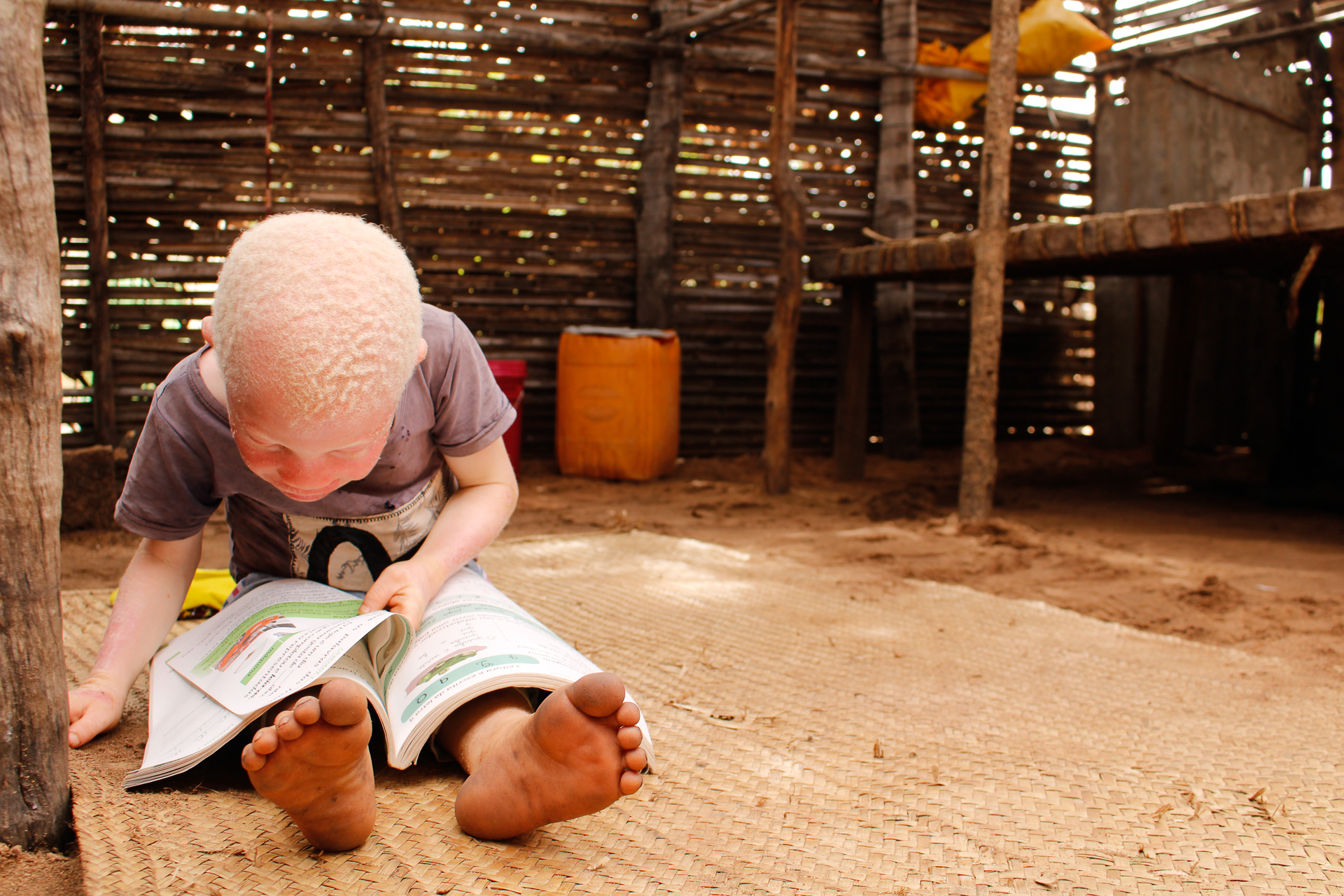
What causes albinism? Albinism is primarily caused by inherited genetic mutations that affect the production of melanin, the pigment responsible for coloration in the skin, hair, and eyes. It is usually passed down from parents who carry the gene mutation.
Is albinism a rare condition? Yes, albinism is considered a rare condition. The prevalence varies among different populations, but globally, it is estimated that around 1 in 17,000 to 20,000 individuals have some form of albinism.
Are all people with albinism visually impaired? While many individuals with albinism have some degree of visual impairment, the severity and specific visual challenges can vary. Some may have normal visual acuity, while others may experience significant visual impairments such as reduced visual sharpness, sensitivity to light, and eye movement abnormalities.
Can people with albinism wear contact lenses or undergo corrective surgery for their vision? Contact lenses can sometimes be used to improve visual acuity or manage specific eye conditions associated with albinism. However, not all individuals with albinism are suitable candidates for contact lenses, and it depends on their specific eye characteristics and conditions. Corrective surgeries may also be considered in some cases to address specific eye abnormalities.
What are the sun protection recommendations for individuals with albinism? Sun protection is crucial for individuals with albinism due to their increased sensitivity to UV radiation. It is recommended to use broad-spectrum sunscreen with a high SPF, wear protective clothing (including hats and sunglasses), seek shade when the sun is strongest, and regularly undergo skin examinations for early detection of any potential skin abnormalities.
Can people with albinism have normal life spans? Yes, people with albinism can have normal life spans. Albinism itself does not typically affect life expectancy. However, the increased risk of sun-induced skin damage and the potential development of skin cancer underline the importance of sun protection measures and regular medical check-ups.
Can albinism be treated or cured? Albinism is a genetic condition, and currently, there is no cure for it. Treatment mainly focuses on managing the associated visual impairments, providing appropriate eye care, and taking necessary precautions to protect the skin from sun damage.
What support and resources are available for individuals with albinism and their families? Various organizations, support groups, and advocacy networks exist to provide information, support, and resources for individuals with albinism and their families. These organizations can offer guidance on education, healthcare, assistive devices, and emotional support. Connecting with local and international albinism organizations can be beneficial in accessing relevant resources and building a supportive community.
How albinism is passed on
The 2 main types of albinism are:
- oculocutaneous albinism (OCA) – the most common type, affecting the skin, hair and eyes
- ocular albinism (OA) – a rarer type that mainly affects the eyes
Albinism is a genetic condition that is usually inherited from parents who carry specific gene mutations. It is passed on in an autosomal recessive manner, which means that both parents must carry a copy of the mutated gene for their child to be born with albinism.
The most common form of albinism, called oculocutaneous albinism (OCA), is caused by mutations in genes involved in the production of melanin, the pigment that gives color to the hair, skin, and eyes. These genes are typically passed down from parents to their children.
When both parents carry a single copy of the mutated gene but do not have albinism themselves (they are carriers), there is a 25% chance with each pregnancy that their child will inherit two copies of the mutated gene and be born with albinism. There is a 50% chance that the child will be a carrier like the parents, and a 25% chance that the child will inherit two normal copies of the gene and not have albinism.
If you or someone you know is affected by albinism or has concerns about genetic inheritance, it’s recommended to consult with a healthcare professional or a genetic counselor who can provide personalized information and guidance based on the specific situation.
Genetic counselling
If you have a history of albinism in your family or you have a child with the condition, you may want to talk to a GP about getting a referral for genetic counselling.
A genetic counsellor provides information, support and advice about genetic conditions. For example, you can discuss with them how you inherited albinism and the chances of passing it on
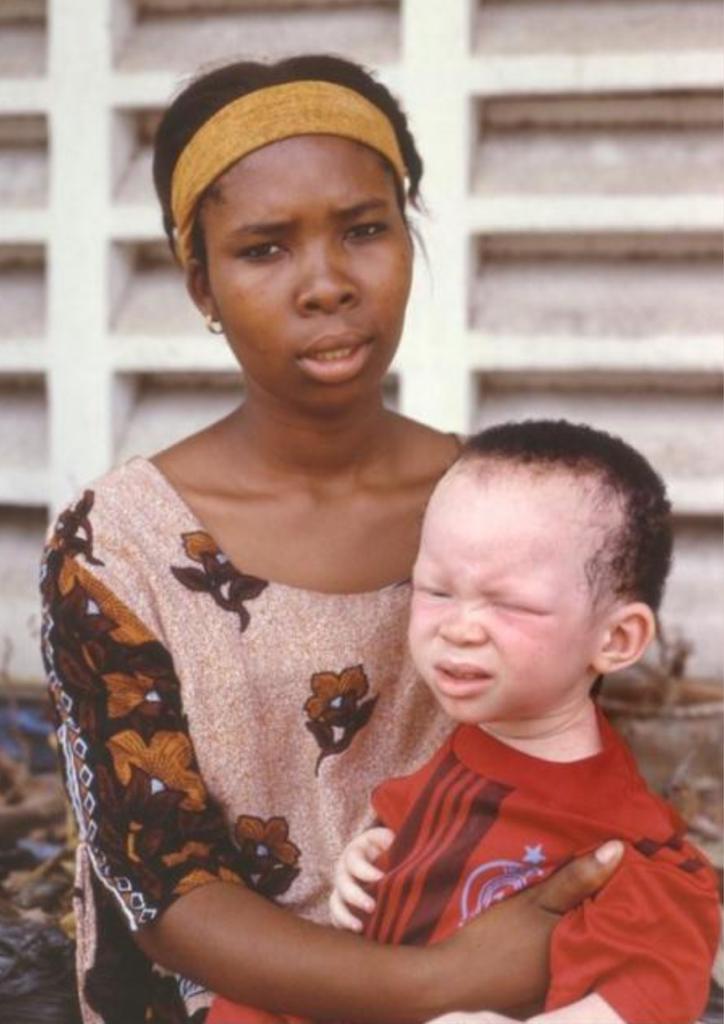
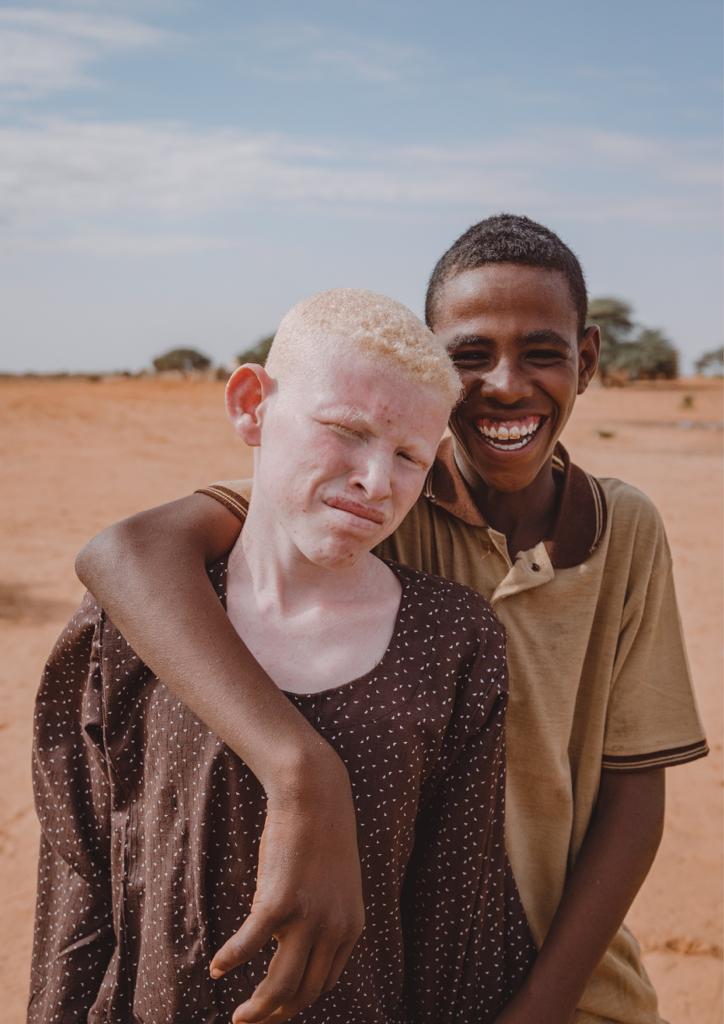
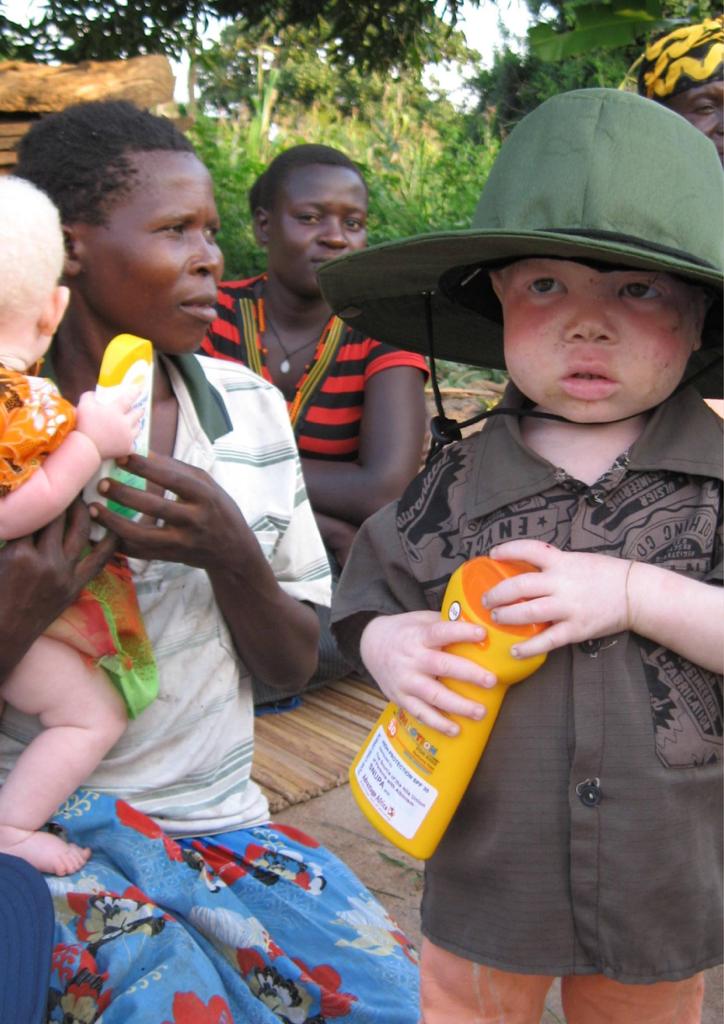
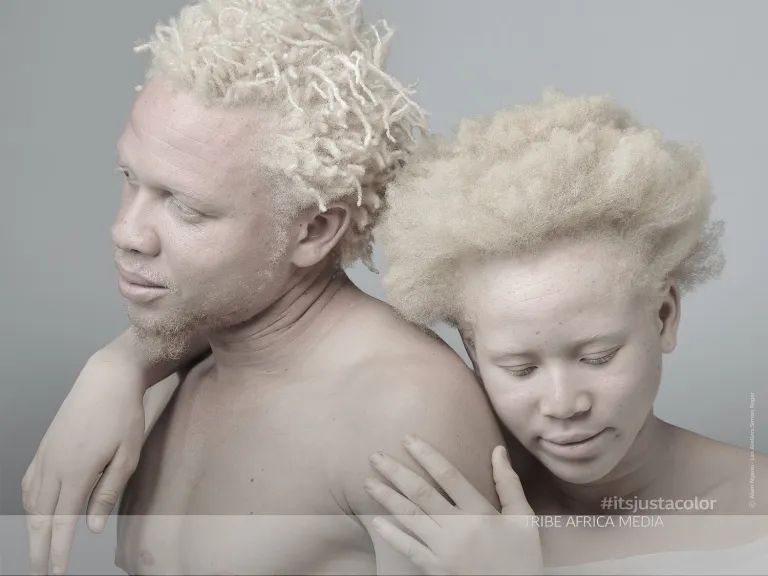
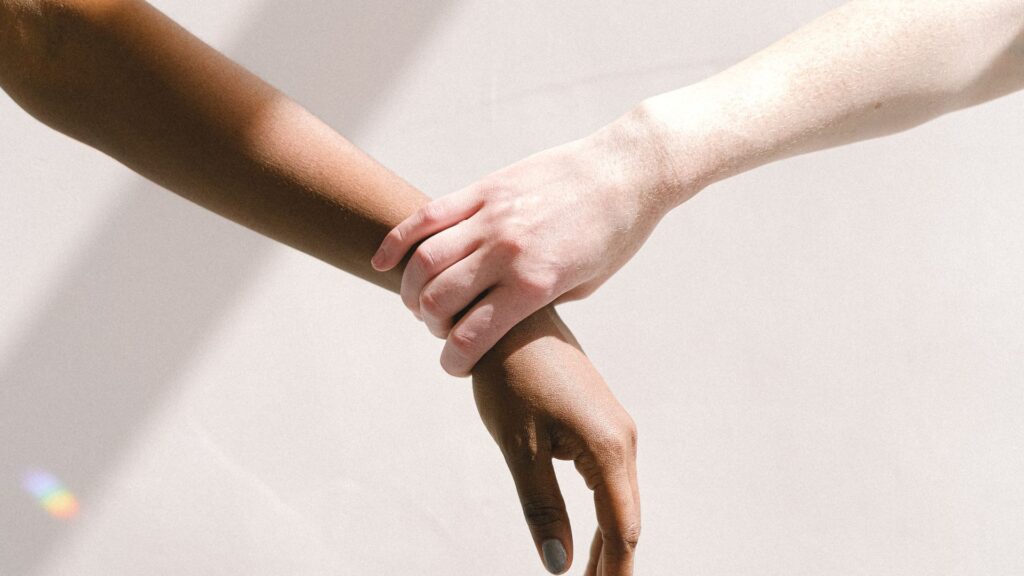
Reducing the risk of sunburn and skin cancer
Because people with albinism lack melanin in their skin, they’re at increased risk of getting sunburn and skin cancer.
If you have albinism, you should wear sunscreen with a high sun-protection factor (SPF). An SPF of 30 or more will provide the best protection.
It’s also a good idea to look out for skin changes, such as:
- a new mole, growth or lump
- any moles, freckles or patches of skin that change in size, shape or colour
Report these to a doctor as soon as possible. Skin cancer is much easier to treat if it’s found early.
Help and support
There’s usually no reason why someone with albinism cannot do well in normal schooling, further education and employment.
With appropriate help and support, most children with albinism can attend a mainstream school.
You might like to talk to other people with albinism. Contact us to provide advice and support locally.
